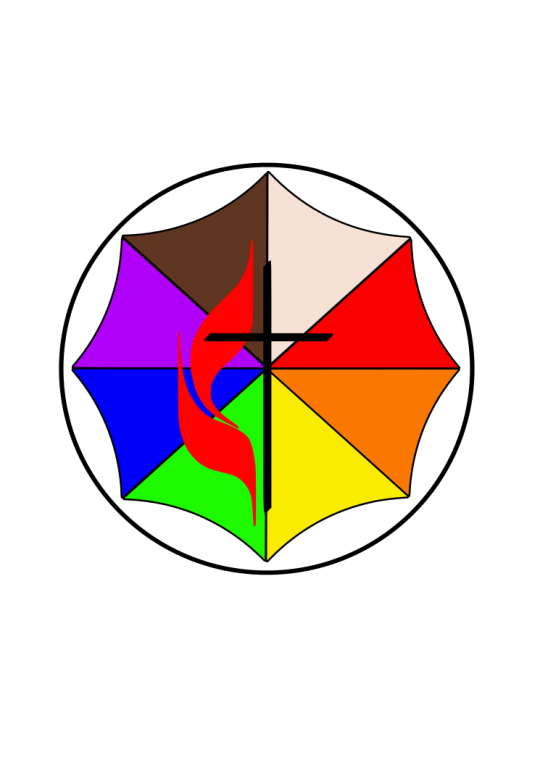 Sermons
Sermons
“Distributive Justice”based on Genesis 1:1-2:4a
In the early days of Christianity, new Christians were baptized on Easter and spend 40 days in preparation for that baptism, much like Jesus spent 40 days in the wilderness preparing for his ministry after his baptism. (I don’t know why the order was reversed.) This included time included fasting, prayer, and teaching.
Eventually, the 40 days before Easter became a time that baptized Christians used to reconsider their lives, their faith, and the next sets of commitments they were ready to make to make space for God to sanctify their lives. The math oriented among us may have noticed that there are more than 40 days between Ash Wednesday and Easter Sunday, our tradition says that Lent does not include Sundays because all Sundays are celebrations of the resurrection, and as such are not fasting days but feasting days! Lent is 40 days, not including Sundays.
My intention during this Lent is to reconnect to those roots, in a different way. John Dominic Crossan theorizes that the primary difference between the way of Jesus and the ways of human empires is how they hold power. Namely, Jesus lived and taught nonviolent resistance, whereas human empires inherently engage in violence. If I were to come down to one difference between the ways of God and the ways of the world, I’d have to agree: God is nonviolent and the world is violent.
I’d give you examples, but I doubt a single one of you needs me to. 🙁
Nonviolence is way to create a world of justice, a world without anyone dominating anyone else, a world of fair distribution of good, a world where the people can thrive. You’ve likely noticed that this isn’t the world we live in right now. It wasn’t the world Jesus lived in either. Nor was it the world that the ancient Jews occupied.
Last week in my sermon I mentioned domination systems, “Domination systems are humanly contrived legal, social, political, economic, military, and religious systems deliberately designed and built to create and maintain power by a few at the top over the many below them. They exist to perpetuate the power of dominators over those dominated, explain why it is necessary, and to transfer wealth from workers up the ladder to the few obscenely wealthy persons at the top of the pyramid. Domination systems of various types have existed since the beginning of recorded history.”1 I proposed that one of God’s primary aims is to disrupt systems of domination and oppression by building cooperation and connection, to bring justice and wholeness.
This Lent, I intend to focus on God’s vision for justice, how we see it in the Bible, how we can feel its urgings now, and what that means for our lives. In other words, I think God wants wholeness for all people, and the only way to get that is by creating a just world. This seems to me to be one of the strongest overarching themes of the Bible, and I’ve chosen 5 passages as examples of how it plays out.
As you probably noticed, the first passage starts at the beginning of the Bible. Our Biblical scholars think that this story is the creation of the Southern priests of Judah. The priests were not intending to claim that they knew how the world had really started, but they were intending to make meaning out of existence itself. (Since the priests were likely also some of the most significant editors of Genesis, if they really thought they had “the answer” to creation, then they wouldn’t have included another answer immediately after this one.)
John Dominic Crossan presented some great ideas about this text during is Carl Lecture this fall. Thanks be to God, they are also written down in the 2nd chapter of his book God and Empire, which has made it much easier for me to recreate his brilliance for you. Dom, as he invited us to call him, points out that the priests present God as first “building a house” and then “furnishing it.” Each of these takes 4 steps, so you might expect creation to take 8 days, or 9 to add a Sabbath. Yet, there are double actions taken on days 3 and 6 to force it all to fit into 6 days of action and a 7 day week. He thinks the 8 parts fitting into 6 days is actually intentional, it draws our attention to the work done to make it fit, it emphasizes getting to 7 at the right time! Dom concludes that this is intended to mean, “in creating the universe, not even God could skip the Sabbath. Put another way: in creating the universe, God crowned it with the Sabbath.”2
He also notices that in day 7 there is a repetition of “rested from all the work he had done”, namely, “And on the seventh day God finished the work that he had done, and he rested on the seventh day from all the work that he had done. So God blessed the seventh day and hallowed it, because on it God rested from all the work that he had done in creation.” (Genesis 2:2-3) Dom explains the repetition this way, “It is not humanity on the sixth day, but the Sabbath on the seventh day that is the climax of creation. And therefore our ‘dominion’ over the world is not ownership but stewardship under the God of the Sabbath.”3 Those priests really were thinking theologically (like they do). This creation story tells us again and again that God sees creation as good and tells us that God is the God of the Sabbath.
Now, the sabbath is one of the ten commandments, likely the one we take the least seriously. Perhaps because our understanding of it has been limited! I want you hear how it is put in Exodus, where the commandment reflects back to this creation story:
Remember the sabbath day, and keep it holy. For six days you shall labour and do all your work. But the seventh day is a sabbath to the Lord your God; you shall not do any work—you, your son or your daughter, your male or female slave, your livestock, or the alien resident in your towns. For in six days the Lord made heaven and earth, the sea, and all that is in them, but rested the seventh day; therefore the Lord blessed the sabbath day and consecrated it. (Exodus 20:8-11)
Dom says, “The Sabbath Day was not rest for worship but rest as worship. It was a day of equal rest for all – animals, slaves, children, and adults – a pause that reduced all to equality both symbolically and regularly.”4 In some texts it even says that the Israelite males should rest SO THAT their slaves and animals could also rest. (Exodus 23:12 and Deut 5:14). This wasn’t something I’d noticed before Dom pointed it out, but he adds even more meaning into this, it gets even juicier! Dom suggests that because the Sabbath was the crown of creation, and one of the first things we know about God is that God is the God of the Sabbath AND because the Sabbath is about equal rest for everyone THEN the Sabbath is about DISTRIBUTIVE JUSTICE of rest, AND our God is a God who built distributive justice into the fabric of creation.
This creation story then suggests that everyone, all of creation, has a right to rest built into the rhythm of time itself! Furthermore, time itself beats to the rhythm of justice, with the rest as the centerpiece of time keeping. Dom concludes that the sabbath tradition itself is a distributive justice, one that starts by distributing rest equally, and then seeks to distribute food, education, and health. The desire for these to be well distributed is inherent in both God and in creation.
However, distributive justice is not inherent in most human societies. Domination systems are the opposite of this proposed rhythm of creation. Domination systems aren’t about rest OR justice. Sabbath tells us of God’s own need for rest that makes space for our shared rest. Sabbath is a gift, and one we are to share.
Today, we desperately need Sabbath. We need time away from the 24 hour news cycle. We need time for in person relationships. We need time for play! We need time to let our attention wander and not need to pull it back. We need time without pressure to be producers or consumers. We need a break from our “normal” to be more fully humanized. We need time for prayer and contemplation, for laughter and celebration. We, like all other humans in all other times, need rest.
But God doesn’t force us to take it, we have to let ourselves have it. Our tradition says that while God does set things up to be good for us, God does not force us nor dominate us to make us do it. Domination systems are bad for humanity, but God doesn’t force us out of them either. God works against them, and God’s people are asked to work against them, but no one is forced to do so.
Furthermore, the work against them can only be nonviolent and in love, or else we become a part of what we’re trying to dismantle.
This Lent, I invite you to Sabbath. Find rest, hold it dearly, and do whatever you can to enable rest for others as well. Remember the rhythm of creation, take note of the God of Sabbath, sense the yearning for justice in the world – and rest. It is the first step towards justice. It is an imperative step towards living nonviolently, as it is living nonviolently with ourselves, and thus modeling it for others. Thanks be to God for being the God of Sabbath. Amen
1Jim Jordal, “What is a Domination System” found on 2/10/2017 athttp://www.windsofjustice.org/index2.php?option=com_content&do_pdf=1&id=356 written on March 14, 2013.
2John Dominic Crossan God and Empire: Jesus Against Rome, Then and Now (USA: HarperOne, 2007), page 51
3Crossan, 51.
4Crossan, 54.
–
Rev. Sara E. Baron
First United Methodist Church of Schenectady
603 State St. Schenectady, NY 12305
Pronouns: she/her/hers

